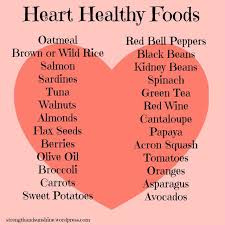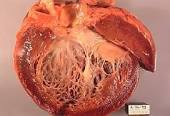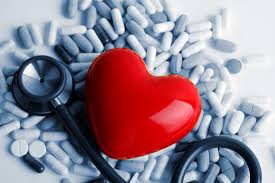
Diagnosed with Cancer? Your two greatest challenges are understanding cancer and understanding possible side effects from chemo and radiation. Knowledge is Power!
Learn about conventional, complementary, and integrative therapies.
Dealing with treatment side effects? Learn about evidence-based therapies to alleviate your symptoms.
Click the orange button to the right to learn more.
- You are here:
- Home »
- Blog »
- side effects ID and prevention »
- Chemotherapy-Induced CardioVascular Disease
Chemotherapy-Induced CardioVascular Disease

“…deaths from cardiovascular disease among cancer patients…has shown that more than one in ten cancer patients do not die from their cancer but from heart and blood vessel problems instead…”
The subject line for this blog post asks how many cancer patients die from chemotherapy-induced cardiovascular disease. But really I am asking about chemo-induced CVD, Cardiomyopathy, Stroke, Hypertension and “blood vessel problems.” According to research, more than 10% of cancer patients die not from their cancer but from CVD.
According to the bottom study below “Overall survival was 72,6% at 5 years, 47,7% at 10 years…”
And those are just the people who die from chemotherapy-induced CVD within the first years after therapy. What about cancer survivors like me? I was diagnosed with chemo-induced cardiomyopathy in late 2010. I’m writing this post in March of 2021.
Here’s what happened…
When I was first told that my chemo-induced CVD and Atrial Fibrillation (AFIB) was caused by my “potentially curative” chemotherapy, specifically
- Vincristine
- Cytoxan
- Busulfan
- Melphalan
my doctor prescribed metoprolol. When I popped one of those I could barely breathe and had trouble sleeping that night. Needless say, I stopped taking metoprolol.
- My efforts became evidence-based but non-toxic heart health therapies ranging from
- nutrition to
- supplementation to
- lifestyle therapies.
I’m not talking rocket science here. This heart healthy lifestyle was simply a continuation of my anti-cancer lifestyle (I am a long-term multiple myeloma survivor).
I’ve had appointments with three difference cardiologists since my original CVD diagnosis and NONE of them discussed diet, exercise, CoQ10, etc.
In the years since my CVD diagnosis in 2010 I have learned about the difference between what oncology/cardiology considers “evidence-based” and what I consider “evidence-based.” I am now living in a non-toxic, non-conventional world and my board-certified medical doctors all live in an FDA approved, conventional world.
It’s important for me to stress at this point in this post, that I am not anti-conventional therapies. I am only saying that M.D.’s should discuss the same non-toxic heart healthy therapies that I found on my own.
My ejection-fraction increased from 35-40 to 45-50. My blood pressure dropped by 10 points. It’s been more than 10 years since my chemo-induced CVD diagnosis. According to the study at the bottom of the page, I should be dead now. Or close to it.
I almost forgot. All that chemotherapy? After remission, relapse, remission, relapse, I was told I was end-stage. That was September of ’97.
If you’d like to learn more about evidence-based, non-toxic heart healthy therapies, scroll down the page, post a question or comment and I will reply to you ASAP.
Thanks,
David Emerson
- MM Survivor
- MM Cancer Coach
- Director PeopleBeatingCancer
Recommended Reading:
- Treating Cancer Cachexia
- Antioxidants During Chemotherapy/Radiation for Multiple Myeloma?
- Low Testosterone (low-T) as a side effect of Chemotherapy-
- Medical Marijuana, Oncology and Multiple Myeloma
Cancer patients are at higher risk of dying from heart disease and stroke
“The largest and most comprehensive study looking at deaths from chemotherapy-induced cardiovascular disease among patients with 28 types of cancer with over 40 years of data has shown that more than one in ten cancer patients do not die from their cancer but from heart and blood vessel problems instead…
More than one in ten cancer patients do not die from their cancer but from heart and blood vessel problems instead, according to new research published…
They used information contained in the Surveillance, Epidemiology and End Results (SEER) database to look at deaths from
- CVD, which included heart disease,
- high blood pressure,
- cerebrovascular disease,
- blocked arteries and
- damage to the aorta…
They (the researchers) used information contained in the Surveillance, Epidemiology and End Results (SEER) database to look at deaths from chemo-induced CVD, which included heart disease, high blood pressure, cerebrovascular disease, blocked arteries and damage to the aorta…
Patients who were more likely to die from cancer than from CVD were those with the most aggressive and hard-to-treat cancers, such as cancer of the lung, liver, brain, stomach, gallbladder, pancreas, esophagus, ovary and multiple myeloma…
This is the largest and most comprehensive study looking at deaths from (chemo-induced) cardiovascular disease among patients with 28 types of cancer with over 40 years of data…
Dr Sturgeon said: “These findings show that a large proportion of certain cancer patients will die of cardiovascular disease, including heart disease, stroke, aneurysm, high blood pressure and damage to blood vessels. We also found that among survivors with any type of cancer diagnosed before the age of 55 years, the risk of cardiovascular death was more than ten-fold greater than in the general population…
“Cancer survivors with cancer of the breast, larynx, skin, Hodgkin lymphoma, thyroid, testis, prostate, endometrium, bladder, vulva, and penis, are about as likely to die of cardiovascular diseases as they are to die of their initial cancer.
The risk of death from cardiovascular diseases is several times that of the general population in the first year of diagnosis; sometimes, this risk decreases, but for most, this risk increases as survivors are followed for ten years or more.
Increasing awareness of this risk may spur cancer survivors to implement healthy lifestyle behaviours that not only decrease their risk of cardiovascular disease, but also the risk of cancer recurrence…”
Additionally, primary care physicians and cardiologists may seek to control cardiovascular diseases more aggressively in cancer survivors…
“As the number of cancer survivors increase, the rate of cardiovascular deaths will continue to rise…”
Limitations of the study include the fact that the type of treatments the patients received was not known, including whether or not they had therapies that can be more toxic to the heart...
“The important work by Sturgeon et al. confirms that cancer patients have an on average 2-6 times higher CVD mortality risk than the general population. This is a key message that every cardiologist needs to hear. Secondly, the CVD mortality risk is evident throughout the continuum of cancer care, and entails an acute phase (early risk) and a chronic phase (late risk)...”
Improving survival of chemotherapy-induced cardiomyopathy in the modern heart failure therapy era
“Chemotherapy-induced cardiomyopathy (CI-CM) is the most frequent complication of cytotoxic drugs cardiotoxicity and portends a poor prognosis: old studies on small populations, mainly treated with digoxin and diuretics, reported a 2-year mortality rate of about 60%…
Aim: To demonstrate the actual improving in survival of a cohort of CI-CM pts followed at our Center in the last two decades…
From 1990 to 2012 we enrolled 62 consecutive pts (32,3% M, age 49±14 y) with CI-CM. Follow up was 70±62 months. At baseline mean left ventricular (LV) ejection fraction (EF) was 39.5±10%, LV end diastolic diameter index 32.1±5 mm/m2, NYHA class 2.6±1.2…
Mean time from last antineoplastic treatment dose and CI-CM diagnosis was 39±64 months. A late-onset cardiotoxicity was reported in the majority of pts with LV dilatation/dysfunction occurring even after 23 years. At the end of follow up 64,5% of pts were receiving
- ACE-inhibitors, 18%
- ARBs and 90% betablockers (BB):
the mean dose was 67%, 75% and 39% of the HF guidelines recommended dosage, respectively…
Overall survival was 72,6% at 5 years, 47,7% at 10 years…
Conclusions: Our data show an improvement in survival of CI-CM pts with respect to data available in current literature. This finding presumably reflects the impact of evidence-based treatment of HF over the years,..”



